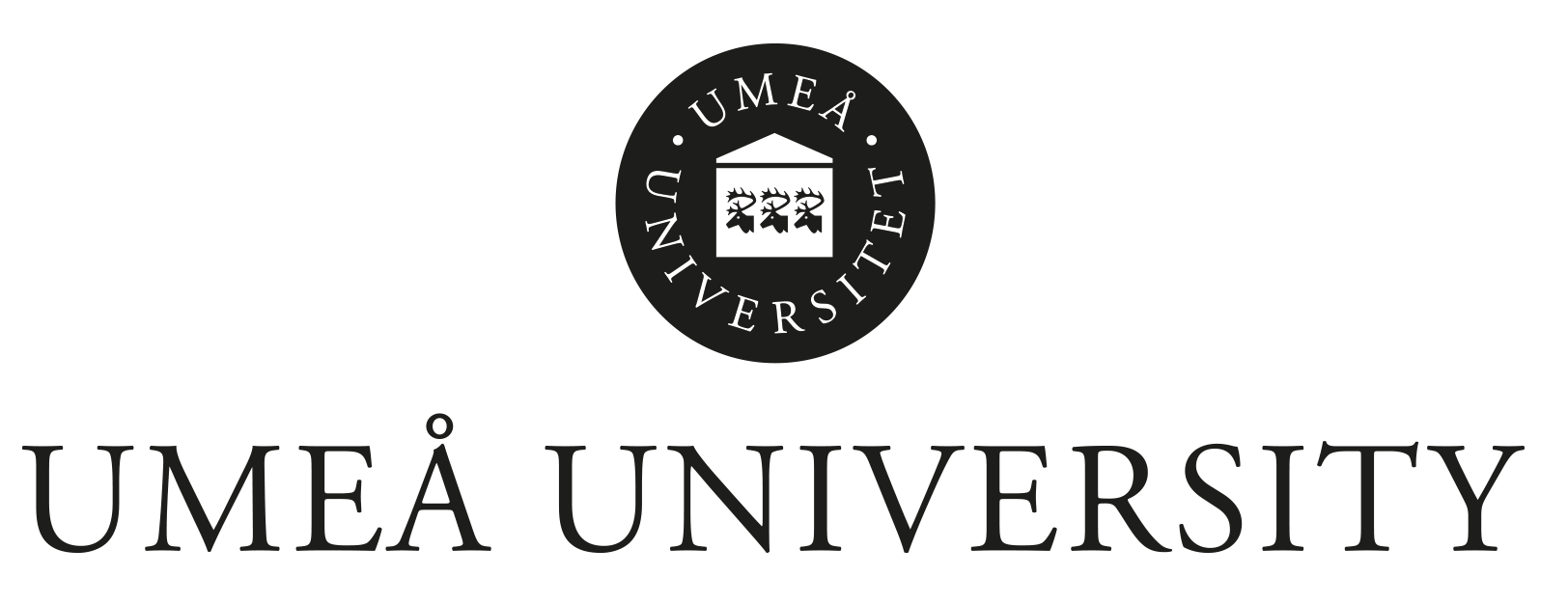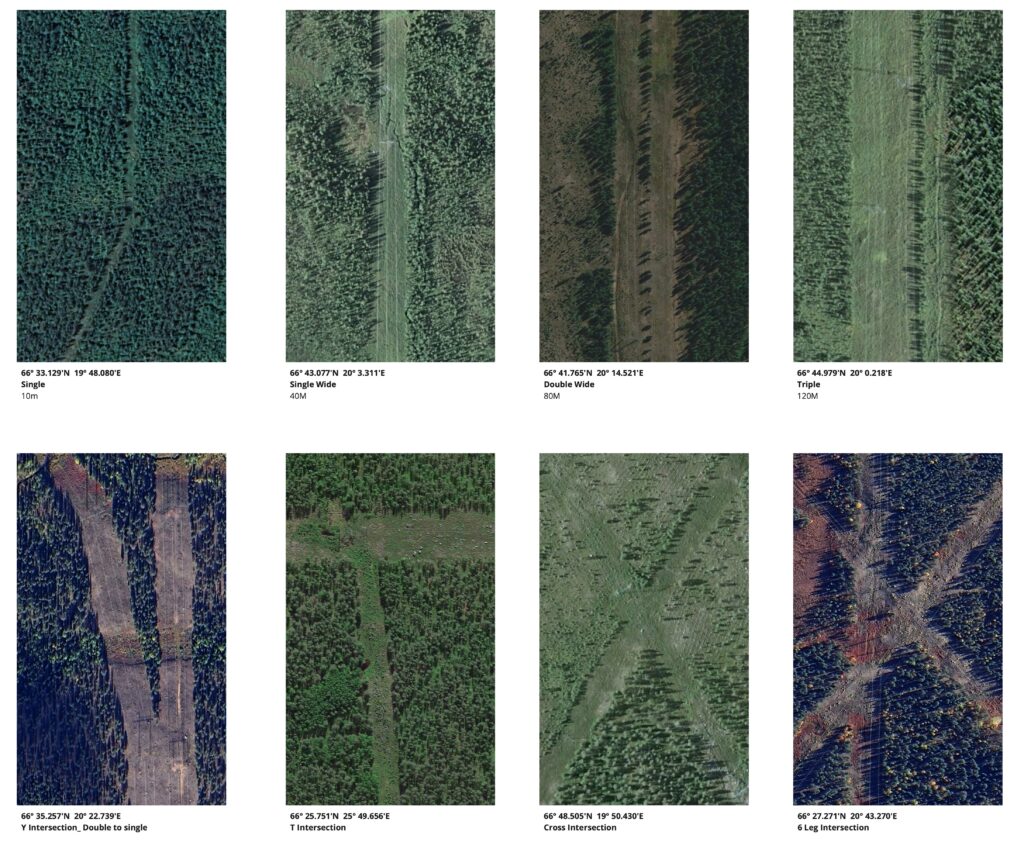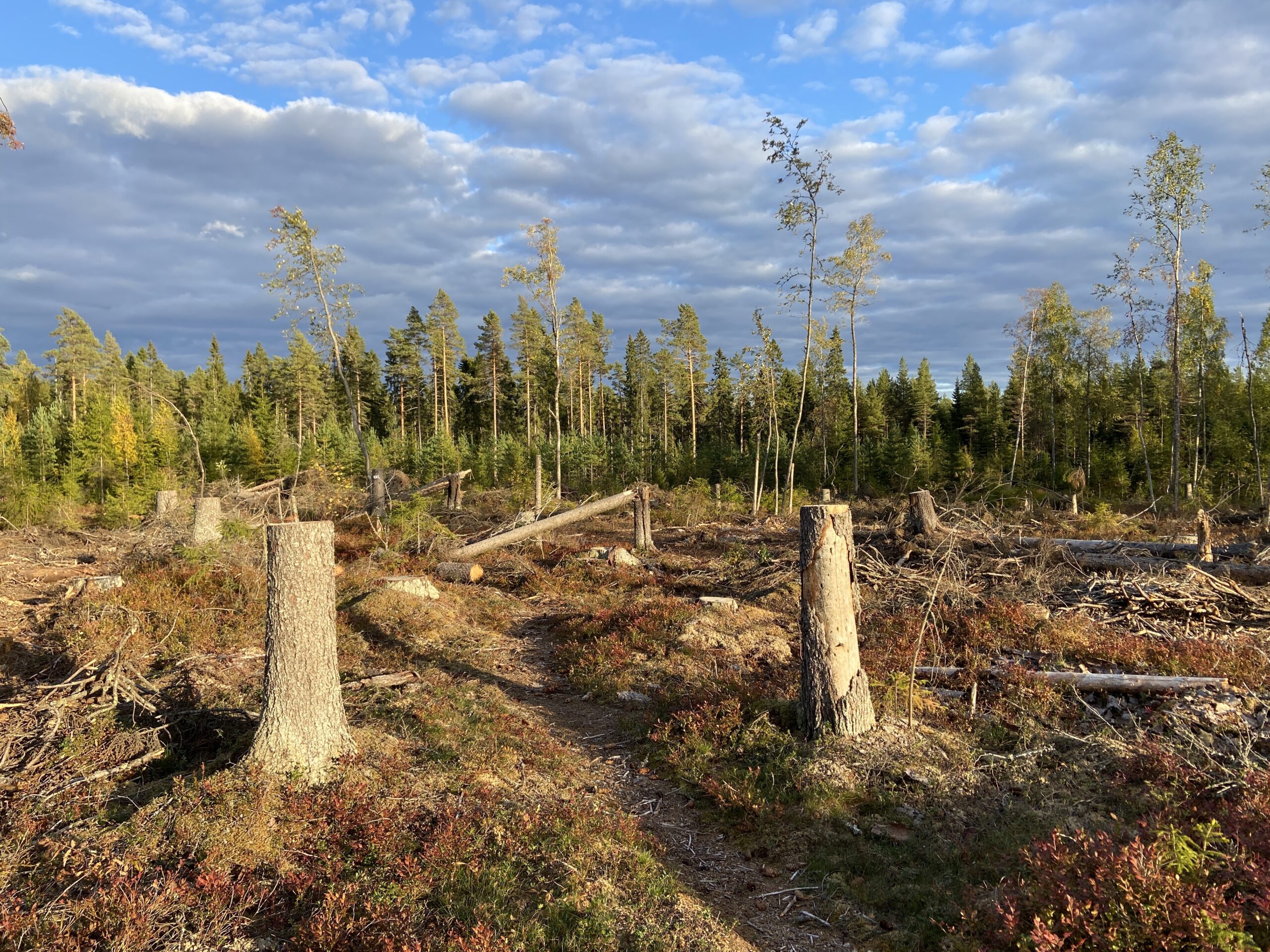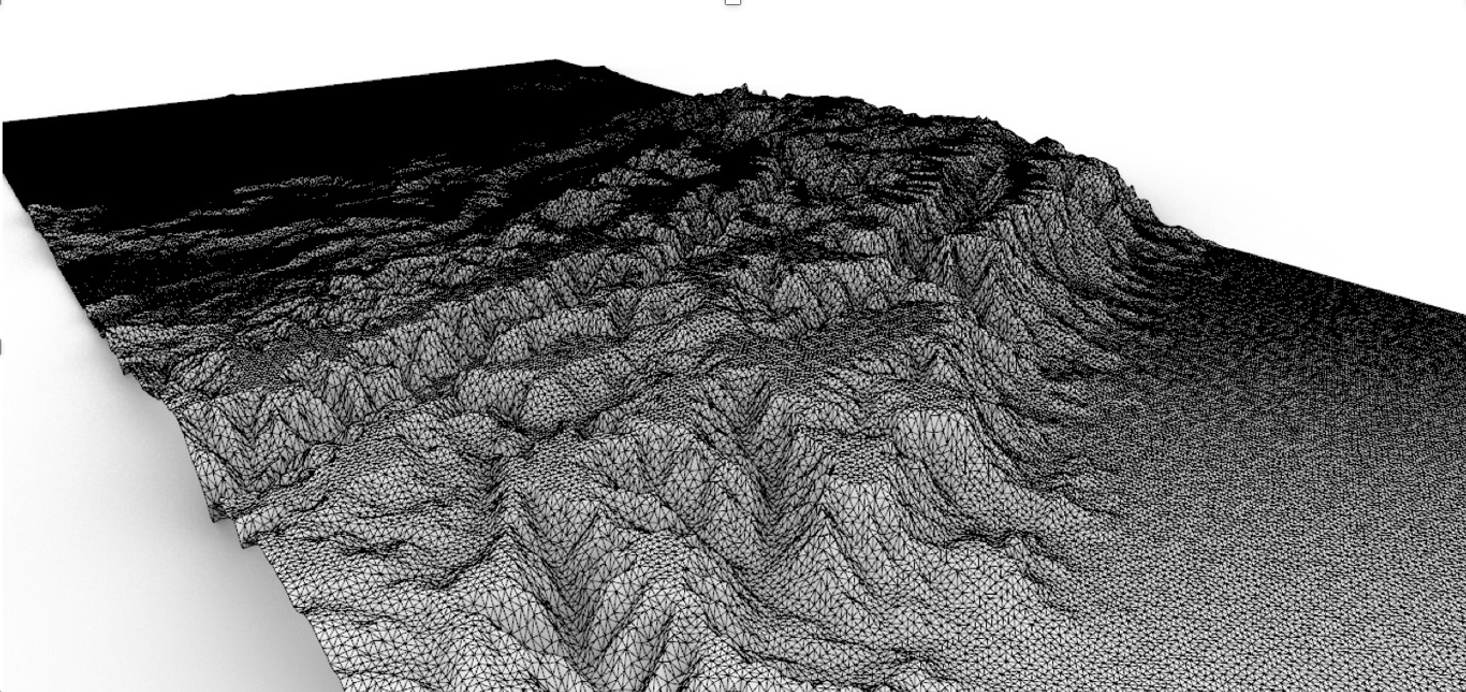A Research Installation at UmArts Research Studio, Arts Campus, Umeå University
Preview: 8 December 2023: 15.00-17.00
Open 12.00-16.00 Dec 9, 15, 16 & Jan 12, 13, 19, 20
Saturday 20 January: 13.00-14.00: Keith Larsson, Director of the Arctic Research Centre, will be in conversation with Alejandro Haiek Coll about his research process for the installation at UmArts. All welcome.
In response to the expanding industrialisation of the north of Sweden, architect Alejandro Haiek Coll’s Small Visionary Project is developing a prototype for a collaborative atlas to map examples of human impact and biological resilience in the Nordic Arctic region. The aim of the research is to raise awareness of how industrial infrastructures and climate change is impacting on the environment and communities. Case studies of environmental injustice and infrastructural violence are captured at different scales using digital territorial analysis.
The Atlas takes the form of an online collaborative digital platform, a tool for visualizing cases of socio-environmental injustice and spatial disturbance. It invites users to experience nature as a complex multiscale entity and to journey into microscopic worlds of survival and rejuvenation. Using open source tools, the project has the potential to include data from researchers and communities across the Nordic Arctic region.
The exhibition in the UmArts studio presents the results of a field trip along the Luleå River and across the fluctuating line of the arctic circle to visually record examples of disruptions in the landscape. The case studies presented here include examples of human infrastructure such as forest industry practices and mining extraction, alongside microscopic organisms contributing to the recovery of toxic and injured landscapes.
Linnaeus’s Journey
The field trip followed the path of Carl von Linnaeus’s 1732 journey to describe the plants animals and minerals of the area. They revisited Linnaeus’ sites to investigate new scales of perspectives on the landscape from plant-life to micro-organisms, to the aerial observations of a drone camera. The field research found that Linnaeus sites are today areas of biodiversity and resource extraction. Whilst Linnaeus’s map originally represented geologic and water systems, it has been transformed through this project into the mega-territorial energy system of the north, featuring landfills, power lines, mines, rail lines, clear cuts, dams, and other forms of infrastructural violence, often leaving cultural heritage or industrial debris.
Research Methods
On the field trip the team carried out a comparative analysis of Carl Linnaeus’s sites using territorial analysis to conduct cartographic documentation of various forms of environmental transition and exhaustion at a variety of sites and scales. Their research methods include complex territorial modeling, collaborative living maps, 3D scanning and printing, AI iterations, intersectional mapping, and trans-scalar material investigations. The project uses a combination of scientific and artistic research methods to document artefacts in the environment from analytical and speculative imaginaries. The Collaborative Nordic Arctic Atlas uses all this material encoded with geospatial data to create a 3-dimensional research platform for studying disruptive phenomena.
Team
Alejandro Haiek Coll is PhD candidate at Universitá di Genova, MA Studio Leader at Umeå School of Architecture and Affiliate Researcher at RISE, and founder of the Laboratory of Experimental Applied Arts Lab-Pro-Fab. His project-based practice focuses on social and environmental re-engineering, investigating post-human geographies, self-governance and free zones as political forms of environmental diplomacy and territorial justice. His research explores planetary ecosystem services for the future, aiming to reorient life-existence within established geopolitical territorial control. His laboratories work cooperatively alongside an international and interdisciplinary research network, exploring infrastructural ecosystems and material excess.
Raquel Colacios: Architect and urban designer, PhD from the Universitat Internacional de Catalunya in Barcelona, co-director of the master of International Cooperation in Sustainable Emergency Architecture. Currently a visiting lecturer at KU Leuven and TU Darmstadt, Guest Teacher in MA studio 12, and Free-standing course mapping changing ecosystems at Umeå School of Architecture. Research field: social and environmental justice.
Tomas Mena: Architect with a master’s in computational design from TH OWL University of Applied Sciences and Arts, Detmold, Germany. Developing projects oriented towards computational and parametric research tools. Guest Teacher in MA studio 12 and Free-standing course mapping changing ecosystems at Umeå School of Architecture. Research field: algorithmic workflows for automation and interoperability.
Luis Pimentel: Architect and Researcher at Stefano Boeri Architetti, Guest Teacher in MA studio 12 and Free-standing course mapping changing ecosystems at Umeå School of Architecture. Scientific Curator at Triennale Milano. Research Fellow and guest teacher at Politecnico di Milano. Research field: Environmental and Landscape Consulting.
Rebecca Rudolph: Masters Degree in Architecture and Urban Design from Umeå University. Guest teacher at BA Studio 3 in Umeå School of Architecture. Project coordinator in Lab.Pro.Fab. Research assistant in the Laboratory of Planetary Diplomacy. Research field: the relation between Nomadic Cultures and Pneumatic Systems.
Research Assistants
Aram Badr: Architect and Masters student in Computational Design at TH OWL University of Applied Sciences and Arts, Detmold, Germany.
Raffaele Errichiello: Erasmus Traineeship and Guest tutor in MA Studio 12 at Umeå School of Architecture and Research Assistant at the Laboratory of Planetary Diplomacy, University of Napoli.
Hana Osman: Guest teacher in Free Standing Course Mapping Changing, Urban Planning, and in the MA Studio 12 at Umeå School of Architecture.
Cesar Velando: Guest teacher at Free Standing Course Mapping Changing Ecosystem and Studio 12 Man Made Geographies, Umeå School of Architecture.
This interactive exhibition has been designed by Laura Bisbe Armengol, UmArts Research Assistant, Umeå Institute of Design; and Raffaele Errichiello.



